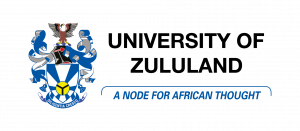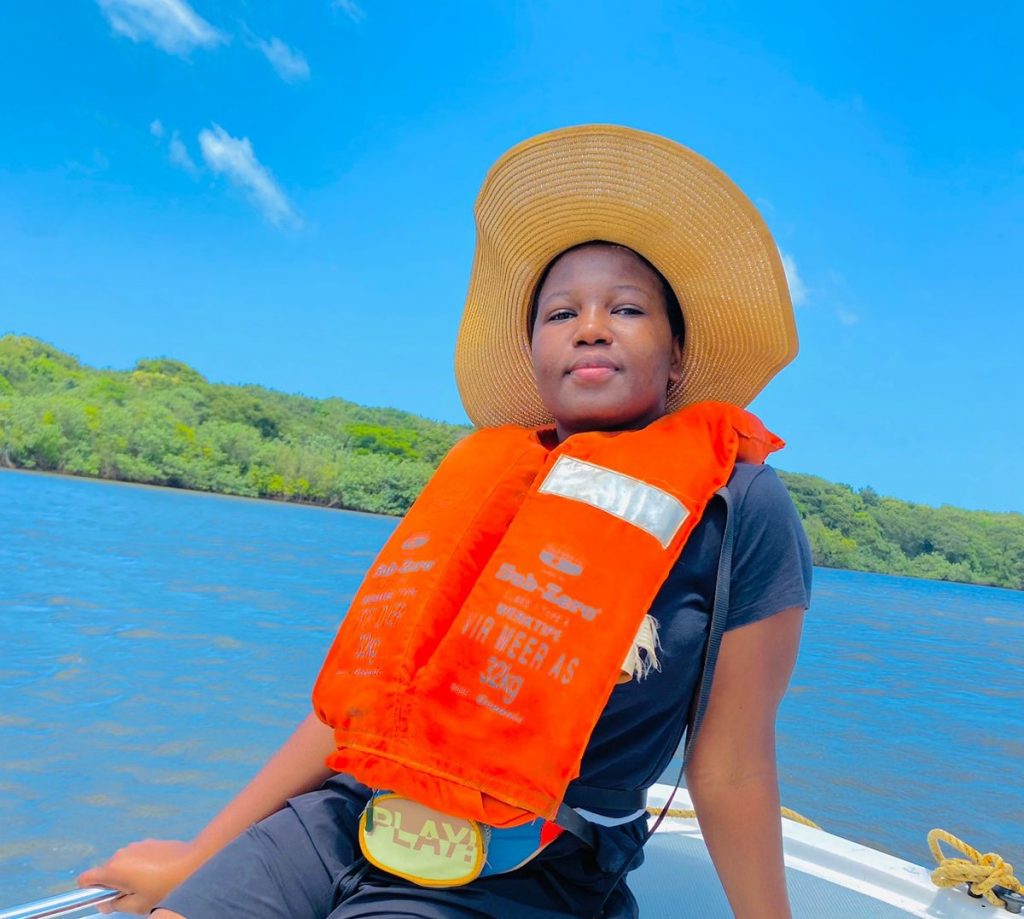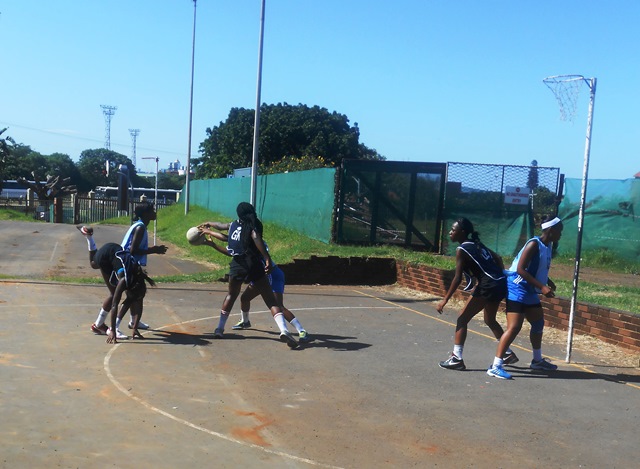The Story of Marine Scientist Lungelo Nsibande
“Marine science is a rarely known field with few females – particularly black women from disadvantaged backgrounds. So, I always feel privileged to be one of the black female students whenever I occupy space in any coastal or research activity. I am always motivated and inspired to work hard when I see the many opportunities being opened to women and the transformation in organisations led by women.”
This is the sentiment of Lungelo Nsibande, a PhD student in the University of Zululand’s (UNIZULU) Zoology Department.
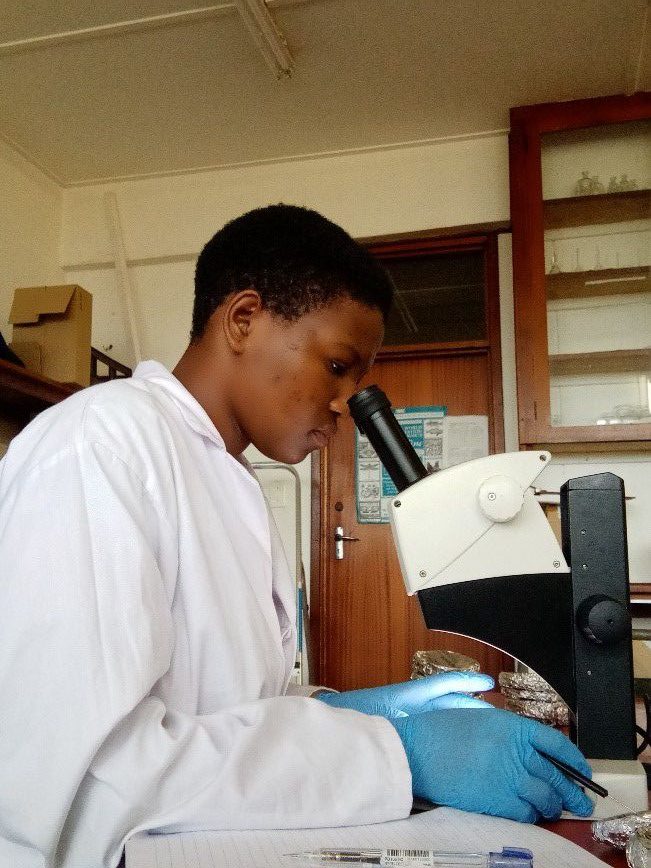
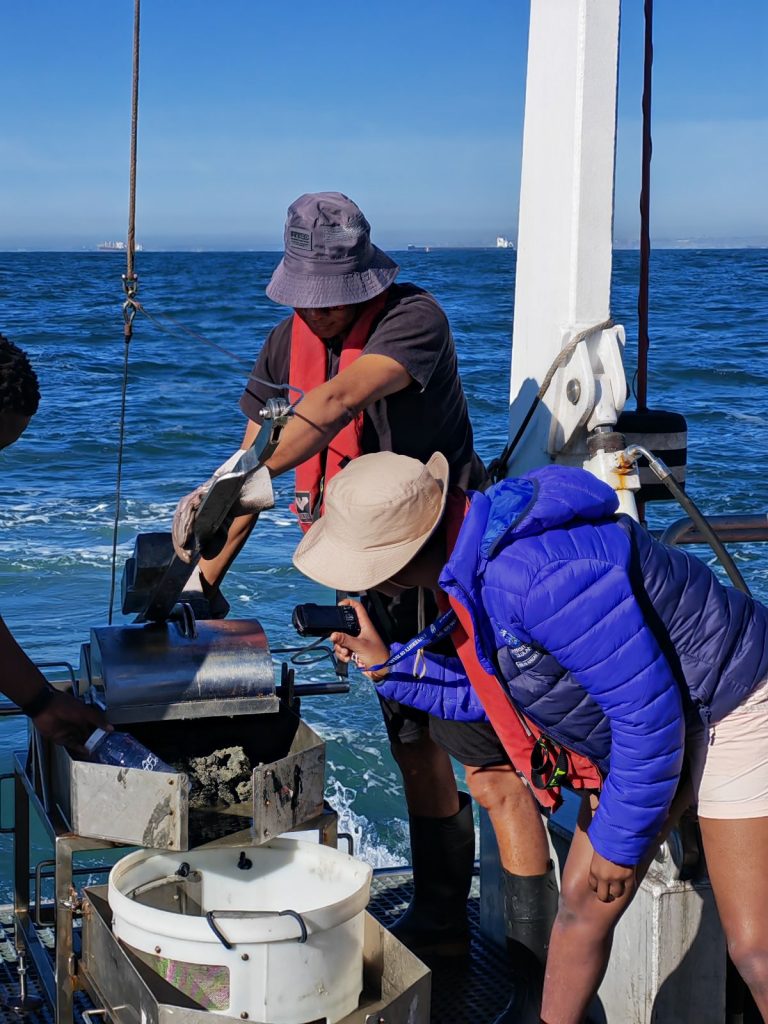
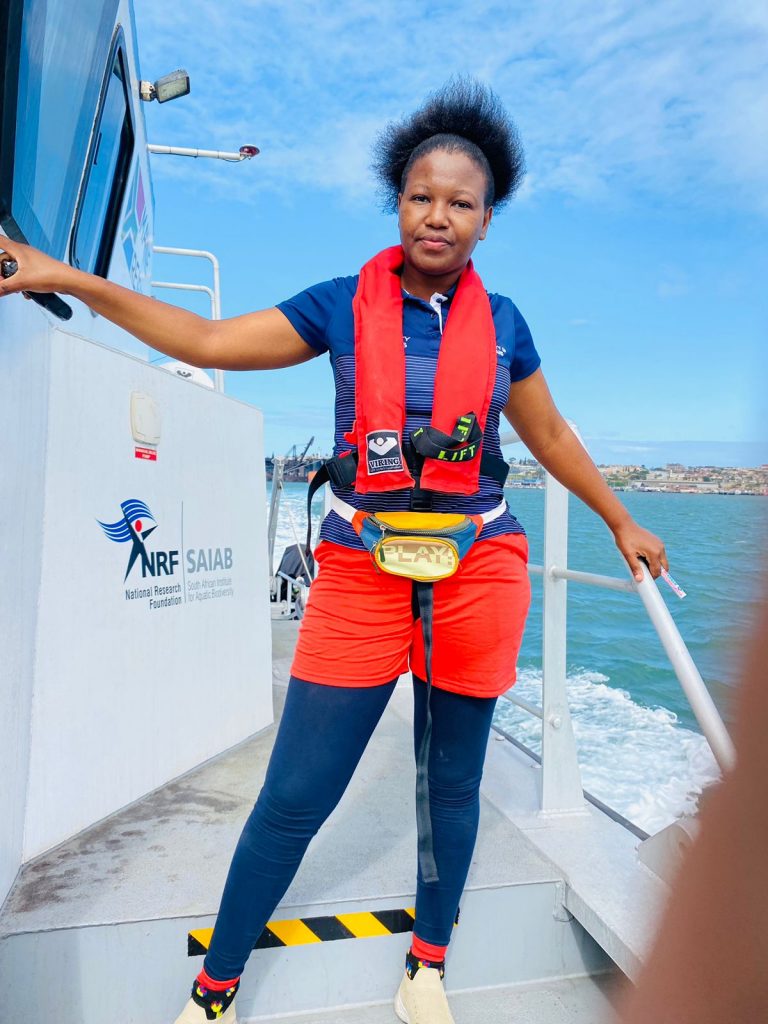
Nsibande comes from the rural areas of Paulpietersburg. Her academic journey with UNIZULU began when she pursued her undergraduate degree in botany and zoology. Realising her affinity for the zoology field, Nsibande decided to study towards an honours degree in zoology in 2018. Upon completion, she enrolled for a master’s degree and obtained this with cum laude. Recalling her master’s journey, she shared that it was a bit challenging due to the effects of the Covid-19 pandemic, but with the support of her supervisors and the University workshops, she managed to complete her qualification.
For her PhD research project, Nsibande is focusing on coastal and marine areas, specifically assessing the spatial distribution of benthic organisms and the health status of marine environments in Algoa Bay and St. Francis Bay, Eastern Cape. This project aims to understand how human activities (such as industrial, port, and harbour activities) affect organisms in the oceans and marine areas. It also assesses the levels of contaminants (including metals and pharmaceuticals) that might be introduced to the oceans by these activities. This research will assist conservation planners and policymakers by identifying hotspot areas that need to be monitored.
Nsibande said that during her postgraduate journey, she learned that the more she studied and conducted research, the more her academic journey helped her develop new skills and confidence. She mentioned that having a supportive family, friends, mentors, and supervisors always kept her motivated. Lastly, the support from NRF SAIAB (South African Institute for Aquatic Biodiversity) has been a constant source of motivation, as they have always supported her research running costs, workshops, and conferences.
– Pamela Mlaba
Pictures: Supplied

